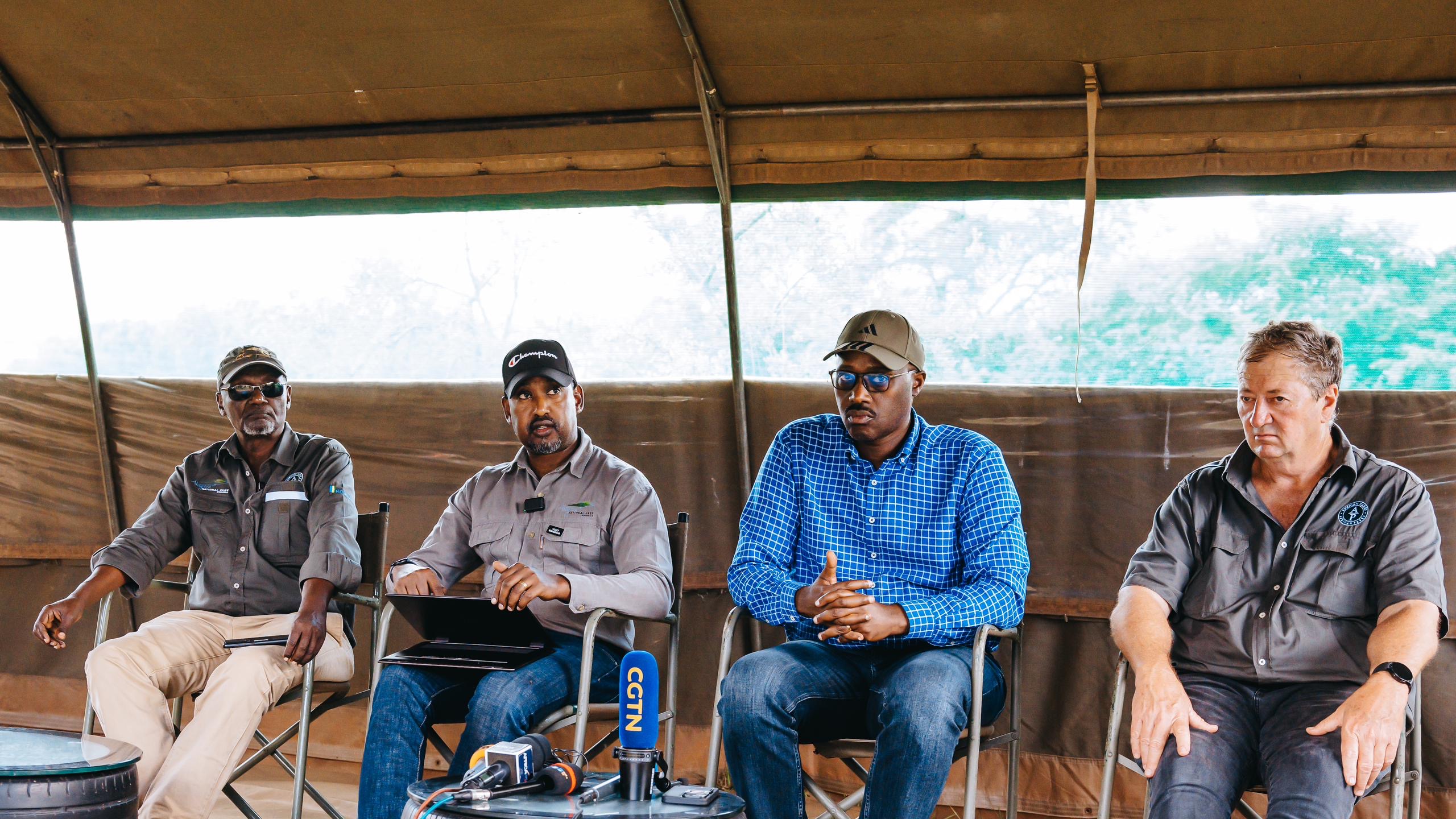70 southern white rhinos have been translocated to Rwanda’s Akagera National Park, marking the largest cross-continental rhino relocation ever attempted under the African Parks’ Rhino Rewild Initiative.
The relocation, conducted in close partnership between African Parks and the Rwanda Development Board (RDB), was carried out in two phases, each moving 35 rhinos over a three-day interval.
The ambitious operation was made possible with funding from The Howard G. Buffett Foundation and is part of a broader plan to rewild over 2,000 rhinos across Africa.
“This historic translocation reflects Rwanda’s growing contribution to global conservation efforts,” said Jean-Guy Afrika, CEO of RDB.
“Our vision of sustainable tourism is rooted in strong conservation practices, and Akagera National Park continues to demonstrate how protected landscapes can provide long-term value for wildlife, communities, and visitors alike.”
The Rhino Rewild Initiative seeks to secure the long-term survival of the species by establishing several viable populations in safe, well-managed parks across the continent.
Southern white rhinos are classified as near-threatened, and this relocation is seen as critical to diversifying their range and strengthening the species’ future.
Rwanda first welcomed southern white rhinos in 2021, when 30 individuals were successfully introduced into Akagera.
That population has since grown to 41.
The addition of 70 more animals is expected to solidify Akagera as a regional stronghold for the species and a key contributor to Africa-wide conservation efforts.
Before their journey to Rwanda, the rhinos were temporarily moved within South Africa to the Munywana Conservancy, a joint conservation area involving community trusts and private game reserves.
This initial phase helped the animals acclimate to natural conditions and diseases similar to those in Rwanda, improving their readiness for reintroduction.
Their 3,400-kilometre journey from South Africa to Rwanda included transportation in individual steel crates, a flight aboard a Boeing 747 from Durban to Kigali, and final ground transfer to Akagera National Park.
Each leg of the journey was closely monitored by veterinary teams to ensure the rhinos’ safety and well-being.
“This translocation is the result of extraordinary collaboration and careful planning,” said Peter Fearnhead, CEO of African Parks. “We are deeply grateful to the Rwanda Government and The Howard G. Buffett Foundation.
While many challenges lie ahead, the safe arrival of all 70 rhinos is a major conservation achievement. The coming months of intensive monitoring will be crucial.”
Now released into their new habitat, the rhinos will be under continuous observation by Akagera’s veterinary team to ensure successful adaptation and to manage any stress-related complications from the move.
Dale Wepener, Warden and Conservation Manager at Munywana Conservancy, praised the project’s collaborative nature.
“This effort reflects the power of partnerships in conservation. We are proud to have contributed to expanding green frontiers and supporting the establishment of new populations for species that desperately need them.”
The Rhino Rewild Initiative also receives key support from the Rob Walton Foundation and Pershing Square Foundation, whose investments in conservation are helping to reshape the future for endangered wildlife across Africa.
With this unprecedented relocation, Rwanda has taken another bold step in positioning itself as a leader in wildlife protection and conservation-based tourism, reinforcing Akagera National Park’s status as one of Africa’s emerging conservation success stories.